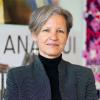Teaching at the Graduate Institute is a privilege. Some of the reasons are obvious and straightforward: the diverse backgrounds, manifold experiences and varied ambitions of our students make discussions rewarding and all participants, including instructors, can learn from them. Moreover, for International Relations (IR) scholars such as me, it matters that Geneva attracts students interested in international politics, often to change it for the better. Being in Geneva also opens doors to internships and practical experiences that turn our students into well-informed insiders prone to pursue relevant research questions. And lastly, it is difficult to overlook the advantage of Graduate Institute teaching in a world of efficient, understaffed mass-universities that squeeze hundreds of students into their lecture halls and engage them through videos, interactive websites and blended learning. At the Institute, teaching mainly takes place in relatively small groups of postgraduate students, mostly in seminars and with space for personalised supervision. When arriving in Geneva in January 2018, I needed no special introduction to teaching here to see the attraction of this environment for myself and, more importantly, for the students.
One aspect of teaching at the Institute has nonetheless surprised me: its openness and flexibility with regard to the content and form. I have long worked, indeed struggled, to promote and advance these characteristics in teaching and in academia. From my perspective, the core challenge of academia is to avoid reproducing and perpetuating established power-knowledge relationships that are problematic not only in the classroom, but politically and societally. How can it be avoided? The answer is complex but an important part of it involves resisting the policing of entrenched academic boundaries as well as the disciplining of academic work. While it is common for IR scholars to dismissively qualify the discipline as “derivative” because it draws inspiration from elsewhere, I think such dismissals misrecognize the crucial place of boundary transgressions for all knowledge production. The open embrace of it is one of IR’s strengths and one of the reasons I continue to identify with it. I also think that much may be gained by adopting the kind of pragmatic, problem- and action-oriented approach that is prevalent in professional schools, including at the Copenhagen Business School where I worked before joining the Institute. Thus, even if I share Sheldon Wolin’s concern that fetishising innovation and change for the sake of change may devalue any and all deepening of knowledge, I don’t think this is the core problem for teaching. Rather, I am more concerned that the stifling defence of tradition – often masquerading as a safeguarding of theoretical and methodological rigour – is the problem. This is not to say that theory and method are unimportant or that “anything goes”; on the contrary, it is a plea for the rigorous work required to teach (also theory and method) in the open and flexible manner necessary to foster innovative thinking. For the plain and obvious reason that this kind of rigorous work challenges abuses of academic power and privilege, it is exceedingly difficult to put into practice. Perhaps I should therefore say that I am genuinely impressed, rather than just surprised, that the Institute has managed to nurture and protect teaching that reflects such openness and flexibility.
The practical implication for my teaching at the Graduate Institute has been momentous, allowing me to work with ideas about the content and form of teaching that push the boundaries of my non-disciplinary approach to the IR discipline. Last term, for example, I taught “Qualitative Methods” for IR in a hands-on manner to reflect with the students on how the wealth of methods at their disposal can be used in imaginative combinations as “heuristic devices” to develop and transform (rather than replicate) IR. I also co-taught a course in “Visual Global Security” with Riccardo Bocco, a colleague from the Department of Anthropology and Sociology, and Jonathan Austin, the lead researcher on the “Violence Prevention – VIPRE” project that the three of us are working on. The aim was to reflect on the significance of the fact that security is – to a steadily increasing extent – communicated through online images. For this course, students could opt to write conventional academic papers or, alternatively, develop films, websites, installations or games. We included the latter media because they are both commensurate with the course content but also because we wanted to provide those interested – and that proved to be the entire class – with an opportunity to develop and experiment with their visual literacy and expression. Neither course worked flawlessly; however, in spite of the substantial challenges, the student engagement made it amply worthwhile. In that sense, the obvious privileges of teaching at the Institute play into and reinforce the less obvious ones.
The unexpected space for experimenting with teaching is interesting to explore because of the privilege of working with motivated students in a thriving environment and under excellent conditions.
This article was published in Globe, the Graduate Institute Review, in Spring 2019.



